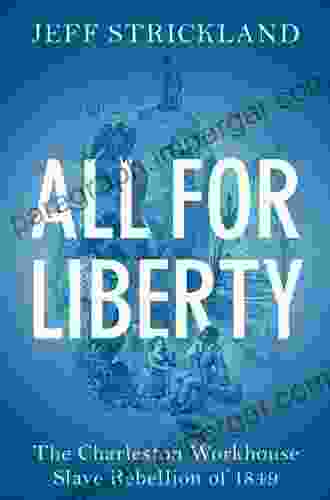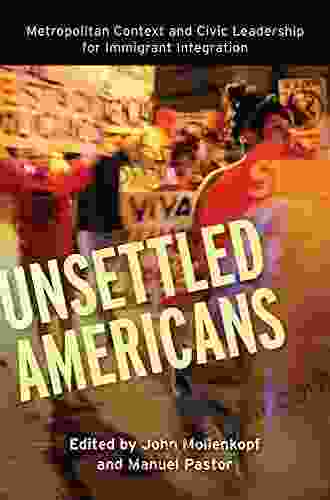The Charleston Workhouse Slave Rebellion of 1849: A Legacy of Resistance and the Power of Unity

In the annals of American history, the Charleston Workhouse Slave Rebellion of 1849 stands as a testament to the indomitable spirit of enslaved individuals and the transformative power of unity. This pivotal event, often overshadowed by the larger narratives of the Civil War and the abolitionist movement, offers valuable insights into the resistance culture of enslaved communities and the complexities of antebellum society.
The Charleston Workhouse, an austere prison complex located in the heart of downtown Charleston, South Carolina, was a notorious symbol of the city's repressive system of racial control. Within its walls, enslaved individuals were subjected to harsh punishments, inhumane conditions, and the constant threat of violence. Many of the inmates were accused of minor offenses, such as petty theft or vagrancy, while others were imprisoned for more serious crimes.
One of the most prominent members of the workhouse's captive community was Denmark Vesey, a free black man who had planned a major slave rebellion in 1822. Vesey's failed uprising, which resulted in the execution of 35 enslaved individuals, cast a long shadow over the workhouse and fueled fears of further insurrections among the local white population.
5 out of 5
| Language | : | English |
| File size | : | 35295 KB |
| Text-to-Speech | : | Enabled |
| Screen Reader | : | Supported |
| Enhanced typesetting | : | Enabled |
| Word Wise | : | Enabled |
| Print length | : | 94 pages |
Despite the repressive atmosphere, a group of enslaved individuals within the workhouse began to plot a daring escape. Led by a man named John Brown, a blacksmith and a skilled organizer, the conspirators gathered in secret, devising a plan to seize control of the workhouse and flee to freedom. Their numbers swelled to over 70 individuals, representing a diverse mix of enslaved people from different backgrounds and occupations.
On the evening of July 11, 1849, the rebellion erupted. The enslaved individuals, armed with knives, clubs, and other improvised weapons, stormed the workhouse's guardhouse, killing three guards and taking control of the prison. They then set fire to the building and escaped into the surrounding streets. Chaos ensued as the city's white population reacted with alarm to the news of the uprising.
The authorities acted swiftly to crush the rebellion. Within hours, the workhouse was surrounded by a massive force of armed citizens and militia. The escaped enslaved individuals were hunted down and captured, one by one. Many were brutally beaten and tortured in an attempt to extract confessions and information about other potential conspirators.
In the end, 31 of the rebels were executed, while others were sold out of state or condemned to long prison sentences. The city of Charleston was consumed by a wave of terror and paranoia, as rumors of another slave rebellion spread like wildfire.
The Charleston Workhouse Slave Rebellion of 1849 had a profound impact on the history of slavery in the United States. It exposed the deep resentment and frustration that simmered beneath the surface of the seemingly placid antebellum South. It also demonstrated the remarkable resilience and courage of enslaved individuals who dared to challenge their oppressors.
The rebellion's legacy extends beyond the immediate events of 1849. It served as a reminder that the institution of slavery was a constant source of tension and resistance. It also foreshadowed the larger conflicts that would eventually divide the nation and lead to the Civil War.
In recent years, there has been a growing movement to remember and commemorate the Charleston Workhouse Slave Rebellion. In 2009, a historical marker was placed on the site of the former workhouse, honoring the rebels and their struggle for freedom. Additionally, various organizations and community groups have organized events and exhibitions to raise awareness about the rebellion and its historical significance.
The Charleston Workhouse Slave Rebellion of 1849 offers a number of important themes and lessons that continue to resonate today:
- Resistance as a Form of Agency: Enslaved individuals were not passive victims but active agents who resisted their oppression in a variety of ways, including armed rebellion.
- The Power of Unity: The rebellion's success was due in large part to the unity and cooperation of the enslaved individuals involved.
- The Importance of Historical Memory: Remembering and commemorating events like the Charleston Workhouse Slave Rebellion is essential for understanding the complexities of American history and the struggles faced by marginalized communities.
The Charleston Workhouse Slave Rebellion of 1849 was a pivotal event in the history of slavery in the United States. It was a testament to the indomitable spirit of enslaved individuals and the transformative power of unity. The rebellion's legacy continues to inspire us today, reminding us of the importance of resistance, the power of unity, and the need to remember and commemorate the struggles of the past.
5 out of 5
| Language | : | English |
| File size | : | 35295 KB |
| Text-to-Speech | : | Enabled |
| Screen Reader | : | Supported |
| Enhanced typesetting | : | Enabled |
| Word Wise | : | Enabled |
| Print length | : | 94 pages |
Do you want to contribute by writing guest posts on this blog?
Please contact us and send us a resume of previous articles that you have written.
 Book
Book Novel
Novel Page
Page Chapter
Chapter Text
Text Story
Story Genre
Genre Reader
Reader Library
Library Paperback
Paperback E-book
E-book Magazine
Magazine Newspaper
Newspaper Paragraph
Paragraph Sentence
Sentence Bookmark
Bookmark Shelf
Shelf Glossary
Glossary Bibliography
Bibliography Foreword
Foreword Preface
Preface Synopsis
Synopsis Annotation
Annotation Footnote
Footnote Manuscript
Manuscript Scroll
Scroll Codex
Codex Tome
Tome Bestseller
Bestseller Classics
Classics Library card
Library card Narrative
Narrative Biography
Biography Autobiography
Autobiography Memoir
Memoir Reference
Reference Encyclopedia
Encyclopedia Joe Hinds
Joe Hinds Jeremiah Bonn
Jeremiah Bonn Jennifer Bohnet
Jennifer Bohnet Joanna Brougher
Joanna Brougher Jenny Mustard
Jenny Mustard Jennifer Cut
Jennifer Cut Jessica Martin
Jessica Martin Jenny Boully
Jenny Boully Jeff Moyer
Jeff Moyer John Amodeo
John Amodeo Jimmy Webb
Jimmy Webb John A Adam
John A Adam Jim Geekie
Jim Geekie Jens Waschke
Jens Waschke Jeffrey Waincymer
Jeffrey Waincymer Jessica Alexander
Jessica Alexander Joe Nobody
Joe Nobody John Bullar
John Bullar Jessica Stern
Jessica Stern Jessica Jayne
Jessica Jayne
Light bulbAdvertise smarter! Our strategic ad space ensures maximum exposure. Reserve your spot today!
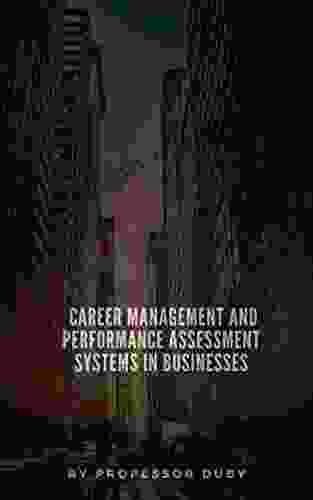
 Charles BukowskiCareer Management and Performance Assessment Systems in Businesses Annotated
Charles BukowskiCareer Management and Performance Assessment Systems in Businesses Annotated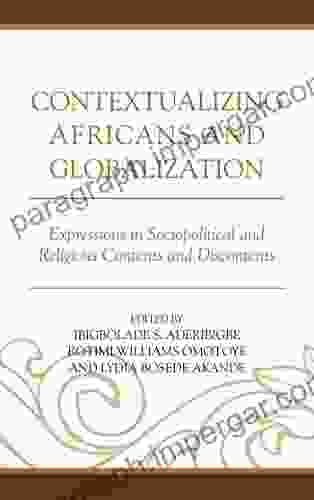
 Branden SimmonsExpressions In Sociopolitical And Religious Contents And Discontents: A...
Branden SimmonsExpressions In Sociopolitical And Religious Contents And Discontents: A... Alvin BellFollow ·8.4k
Alvin BellFollow ·8.4k Edgar HayesFollow ·17.2k
Edgar HayesFollow ·17.2k Mark MitchellFollow ·5.6k
Mark MitchellFollow ·5.6k Ernest HemingwayFollow ·3.3k
Ernest HemingwayFollow ·3.3k Todd TurnerFollow ·11.1k
Todd TurnerFollow ·11.1k William ShakespeareFollow ·7.8k
William ShakespeareFollow ·7.8k Timothy WardFollow ·9.9k
Timothy WardFollow ·9.9k Billy PetersonFollow ·5.6k
Billy PetersonFollow ·5.6k

 Christian Barnes
Christian BarnesUnleash Your Creativity: Build Interlocking 3D Animal and...
Discover the Art of Paper...
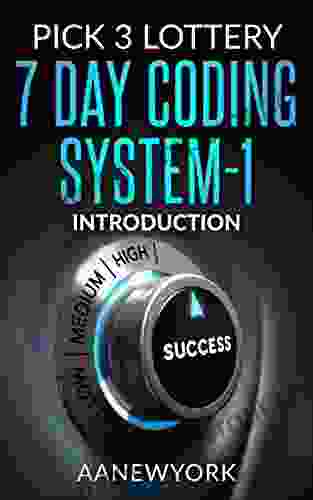
 Terry Bell
Terry BellUnveiling the Secrets of Winning: A Comprehensive Guide...
In the realm of chance and fortune, the...

 Albert Camus
Albert Camus101 Things That You Should Do Before Leaving The House In...
Starting your day right is...
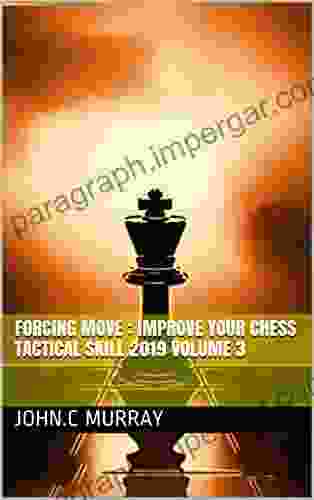
 Anthony Burgess
Anthony BurgessForcing Move 2024 Volume: Unleash Your Inner Grandmaster
Embark on an extraordinary chess...
5 out of 5
| Language | : | English |
| File size | : | 35295 KB |
| Text-to-Speech | : | Enabled |
| Screen Reader | : | Supported |
| Enhanced typesetting | : | Enabled |
| Word Wise | : | Enabled |
| Print length | : | 94 pages |


